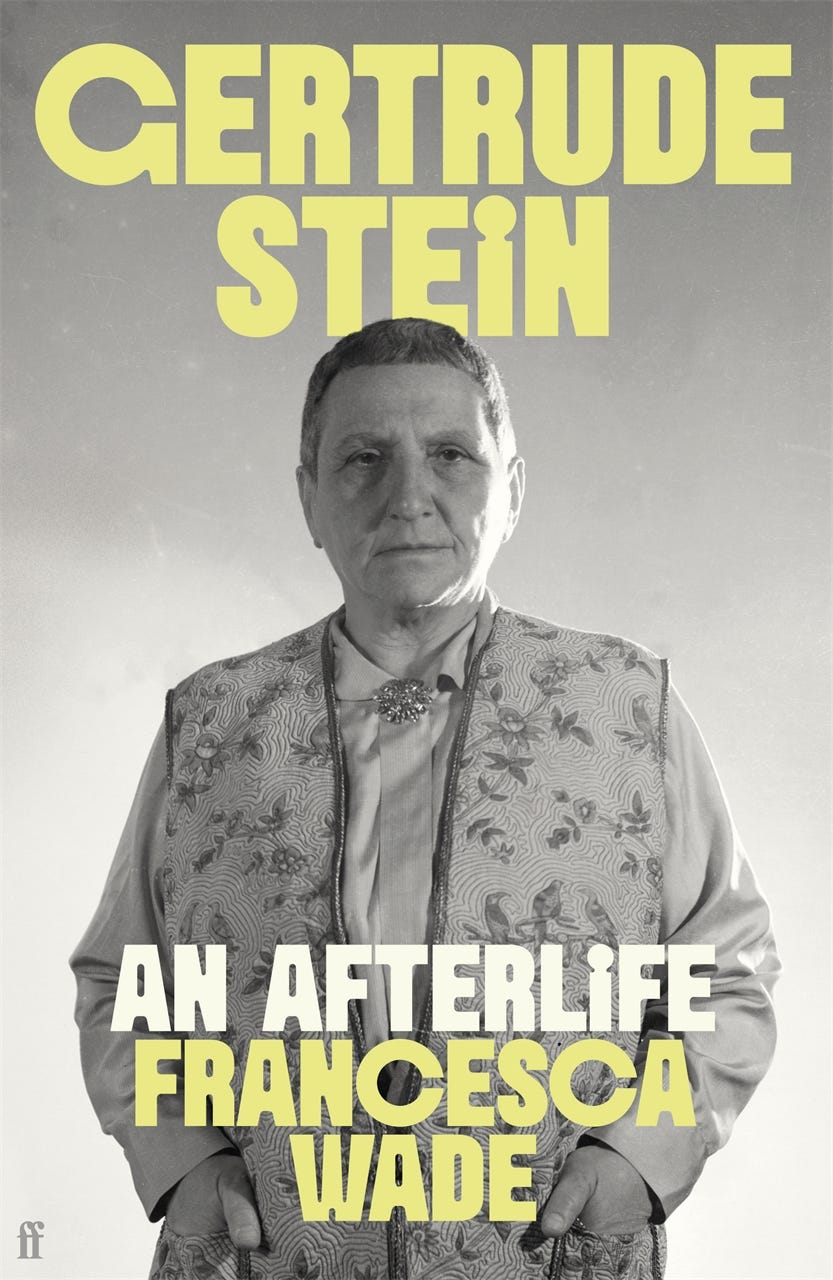‘The Old Man and the Sea has the EMPTIEST sea in all of LITERATURE’
Gertrude Stein compared FDR to fascists
The meeting got off to an inauspicious start when Basket — blind and arthritic — escaped on to the roof, promptly followed by Toklas, who climbed out of the window into the rain to rescue him. Back in her seat, bedraggled and nervous, Katz recalled that Toklas ‘made her dislike of being interviewed about Stein immediately and abundantly clear’. Before they met, she had warned him that she considered most scholars thoroughly misguided. The rival biographer John Malcolm Brinnin had visited her two years earlier, and put her off immediately by being ‘visibly moved to be in Baby’s home’. Brinnin had lost all her respect, she told Katz, when he asked her first about Guillaume Apollinaire’s influence on Stein, which she considered ‘nil, absolutely nil’, then about Stein’s relationship with Ernest Hemingway, whom Toklas hated with a vengeance (‘I made Gertrude get rid of him,’ she told Sutherland). Determined to thwart his book, she had informed Brinnin she would take legal action if her own name was mentioned outside the context of her role as editor of the Plain Edition. (‘What would legal action mean?’ she asked Van Vechten. ‘It sounded harsh and menacing when it flowed forth.’) When Katz mildly protested his admiration for Hemingway, he felt the heat of the Toklas temper: ‘The Old Man and the Sea has the EMPTIEST sea in all of LITERATURE,’ she shouted in fury.
What a good year it is turning out to be for biography! That is from Gertrude Stein: An Afterlife by Francesca Wade. (Basket was a poodle.) There are many such excellent passages. You may not think you want to read about Gertrude Stein, and you may dislike Stein, but this is a really well-researched, well-written, interesting book, full of cultural history, funny anecdotes, and sound judgement. Stein studied with William James and did original scientific research, collected works by Picasso and others before they were famous, and went to the second night of the Rite of Spring. She is a real late bloomer, too. You will learn a lot and enjoy it irrespective of your views on Modernism or anything else.
Did you know that Stein was a staunch Republican who switched to the Democrats for Grosver Cleveland (so essentially she had Robert Frost’s politics) and compared FDR to Hitler and other fascists?
In American politics she was a lifelong Republican, bar a brief moment at college when she became fascinated by the Democratic president Grover Cleveland; she told an interviewer in 1934 that only Cleveland and Woodrow Wilson had possessed the ‘singular seductiveness’ required to make her Republican allegiance waver. She expressed a strong dislike of the French socialist prime minister Léon Blum and the Popular Front – despite her closeness with Picasso, she told a friend in 1937, in an only semi-facetious tone, that she wasn’t sure whether communism was not even worse than fascism – and often expressed nostalgia for the lost eighteenth-century spirit of ‘individual liberty’, as represented by George Washington, which she contrasted positively with the paternalism of Roosevelt’s New Deal. After the American tour, she had written a series of short, glib articles for the Saturday Evening Post about money, warning of the dangers of state intervention. She argued that Roosevelt, in ‘thinking for us’ with his interventionalist economic policy, was forcing Americans to submit to governmental authority and depriving them of the freedom to live a ‘private life’; she likened him to ‘father Mussolini and father Hitler . . . and father Stalin and father Trotsky and father Blum and father Franco’. Perhaps Roosevelt’s regime reminded her, uncomfortably, that her own money had always been doled out by a father figure, until she began to earn a living through her writing in her sixties.
Mostly, of course, she just wasn’t a political person. The second half of the book is all about what happened after Stein died, which is splendid at recreating the feeling of coming to know someone once they are gone, very important for biography. I did not admire Wade’s first book Square Haunting but I think this is a first-rate piece of work. Recommended.



Eh? Stein was right, Communism was even worse that fascism: Stalin began the War as the genocidaire of Ukraine and ally of Hitler. By 1954 he had killed far more than Hitler did and had his book over eastern Europe's throat; Soviet Communism was certainly worse than fascism.
Thanks for this encouraging review. I have this book on my 'to buy' list but haven't taken the step yet.